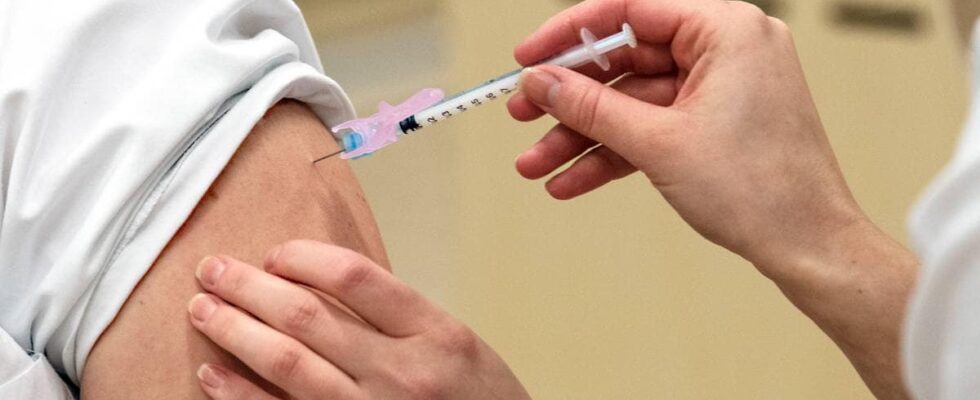After the coronavirus hit Norway in 2020, several million vaccine doses have been administered. Norwegian Patient Injury Compensation (NPE) has processed 1,513 claims for compensation for illness following the corona vaccine. 419 have been approved. 133 of those who were refused took the case on to the National Complaints Agency for the Health Service (Helseklage), but only two were upheld there. The Patient Injury Board is one of several boards in Health Complaints, and the head of the board, former district court judge Kjetil Gjøen, tells news that in the appeals that have been rejected, a clear causal link between the vaccine and the ailments the patients suffer from has not been demonstrated in practice. – There we rely on our experts who are involved in the cases, and the doctors who are on the tribunal, says Gjøen. Professor of jurisprudence at the University of Bergen, Magne Strandberg, will have disputes about compensation after illness due to the corona vaccine for court proceedings. Photo: Sofie Strandberg Now, professor of jurisprudence at the University of Bergen, Magne Strandberg, is advocating that disputes about compensation after the corona vaccine be tried before the court. – Yes, it is about time. The assessments to be made here are not entirely simple, says Strandberg to news. Legally uncertain He underlines that there must be a research basis to assume that a vaccine may have caused a specific injury. – There is a certain legal uncertainty here that ideally needs to go to court to be clarified. And most preferably it should go all the way to the top of the legal system to get clarification on this issue, says Strandberg, meaning that the cases should go all the way to the Supreme Court. Kjetil Gjøen agrees with Strandberg that a legal decision would be good. Former district court judge Kjetil Gjøen is head of the Personal Injury Board. Photo: Håkon Mosvold Larsen / NTB – Yes, we are interested in hearing what the courts think about these issues. We probably won’t get a final verdict, no matter which direction he goes, because new research reports keep coming. What is more interesting is that the courts can specify how we should use evidence in these cases. – Is it a challenge for the tribunal today? – It is a challenge, yes. We think these are difficult cases, says Gjøen. Disagreement among professionals There is disagreement among immunologists as to whether the corona vaccine could be the cause of the ailments some people have suffered. Professor of immunology Elling Ulvestad at the University of Bergen, Photo: Leif Rune Løland / news Professor of immunology at the University of Bergen, Elling Ulvestad, delivered a report to the Norwegian Nurses’ Association earlier in the autumn, and to news he said: “The three corona vaccines that have were used in Norway can cause illness in the form of exhaustion, muscle pain and cognitive problems”. That report was later criticized, among other things because he referred to research that had not been peer-reviewed. Ulvestad rejected the criticism, but the Patient Complaints Board would not rely on his report anyway. – It is because we have other assessments that say something else, primarily an assessment from professor of immunology, Gunnveig Grødeland from the University of Oslo, who has come to other conclusions on these points, says Kjetil Gjøen to news. Professor of immunology Gunnveig Grødeland at the University of Oslo. Photo: Ola Sæther Grødeland said this to news in September: “Today, one can neither rule out nor say for sure that there is no connection. It is open today, as I see the research.” Are open to causation, but… – Grødeland is not so firm, so why is the Patient Injury Board so firm in its refusal? – We are not absolutely sure that there is no causal connection. We are open to the possibility that it could be. But the legal threshold, as we consider it, is that a certain amount of research is required to establish that the conditions for compensation are present. And we can’t see that this requirement has been met, according to our experts, says Gjøen. The tribunal therefore believes that it is theoretically possible that the vaccine can cause disease, but that theory is not sufficient. Professor Grødeland has written a declaration for NPE. This declaration says something about the development of corona vaccines, how they work and about any side effects. The state will probably vote news is aware that several people who have been rejected by the Patient Injury Board will vote for the state for a wrong interpretation of the regulations. They will then refer to the Supreme Court’s judgment from 2015, where a 12-year-old boy was diagnosed with MS after taking the second dose of the MMR vaccine. They believe the judgment is indicative of vaccine cases. The state therefore lost that case, and the conclusion was that since it had not been proven that another cause of the MS diagnosis was more likely than the MMR vaccine, the state was liable for compensation for the damage. Published 01.11.2024, at 06.00
ttn-69
I think the cases should be tried in court – news Norway – Overview of news from different parts of the country

